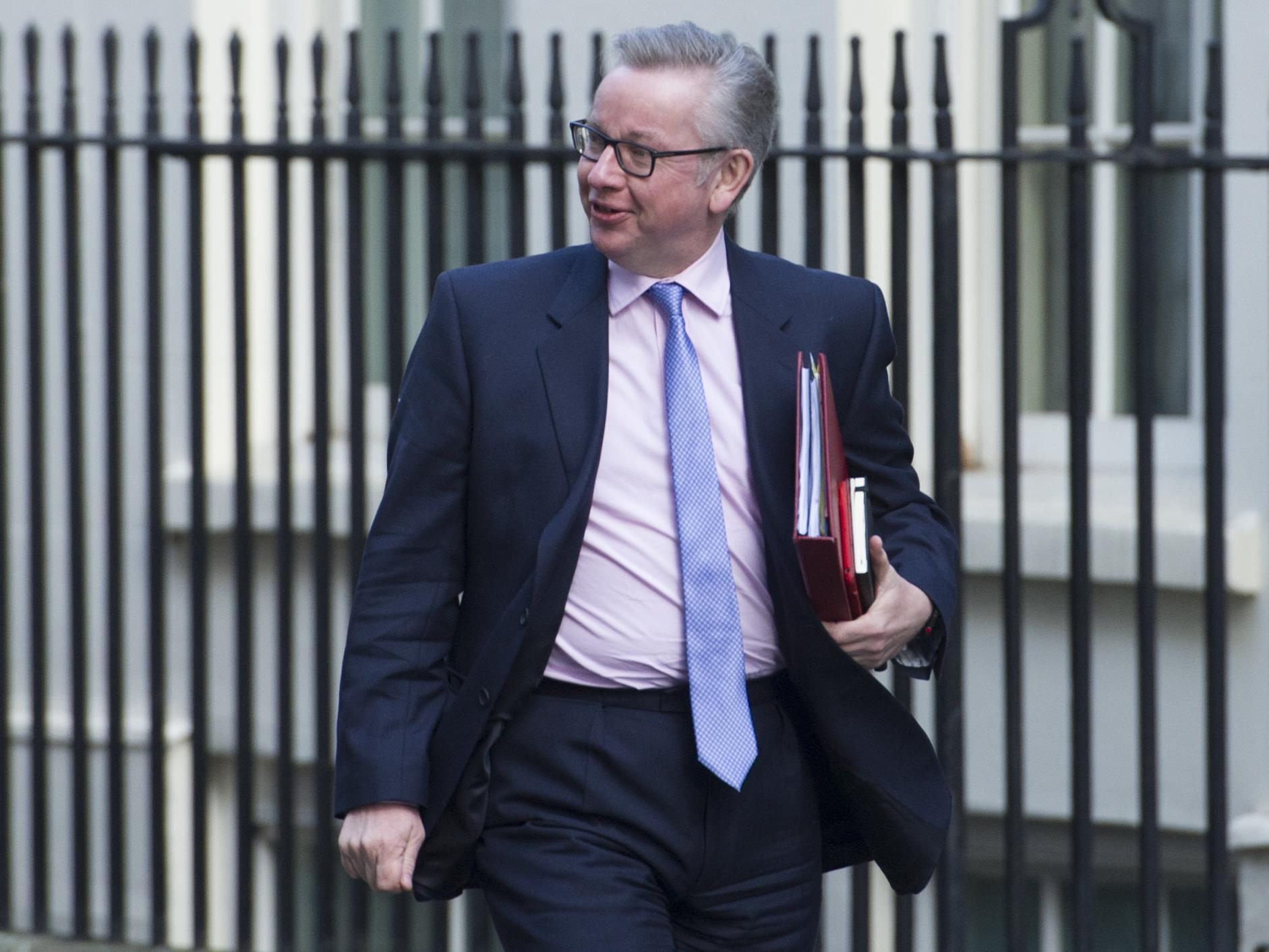Government's post-Brexit environment laws will not enshrine EU principle that makes businesses pay for pollution they cause
Environment secretary Michael Gove says new laws will ensure ‘core environmental principles remain central to government policy and decision-making’ following Britain’s departure from EU

Proposals for new environmental laws to ensure green protections are not weakened following Brexit have been deemed “hugely disappointing” by experts.
A consultation has begun on measures intended to provide the “green Brexit” ministers have promised, embedding protections for the UK’s environment into policy when the European Union (EU) no longer oversees such matters.
The proposed Environmental Principles and Governance Bill will ultimately establish a “world-leading” independent body that holds the government to account on environmental issues.
While environment secretary Michael Gove said the new bill will “ensure core environmental principles remain central to government policy and decision-making”, campaigners have claimed that standards are likely to slip unless significant changes are made.
“The government set high expectations with promises of a world-leading environmental watchdog and enhanced environmental standards. Yet the consultation released today proposes to give the environment and countryside less protection after Brexit than exists now,” said Shaun Spiers, chair of Greener UK, a coalition of environmental groups that includes WWF, Friends of the Earth and Greenpeace.
“There is no commitment to give the proposed new watchdog power to initiate legal action, nor is there any commitment to enshrine vital environmental principles, such as the precautionary principle and the polluter pays principle, in law. This is hugely disappointing and suggests that some ministers do not want to be held to account on laws that protect our beaches, habitats and air quality.”
As it stands, decisions made by the government are underpinned by European Commission principles including the precautionary principle, sustainable development and the “polluter pays” principle.
These concepts ensure that such decisions do not cause undue harm to the country’s land, water, air and wildlife. When Britain leaves the EU, these protections will no longer be in place.
“If you took away the polluter pays principle, those people who know if I pollute a water course as a farmer, or a local swimming pool allows their water into the water course or there is an oil spill, at the moment they know the courts will take action against them,” said Joan Edwards, director of public affairs and living seas at The Wildlife Trusts.
“If we lose the polluter pays principle, we don’t have any way of saying ‘you have to pay for this’. It is likely we could see an increase in pollution-related incidents.”
Around 80 per cent of UK environmental policy has its origins in EU law, and much of the progress that has been made in green standards has been attributed to European agreements.
The EU has previously intervened in the UK to demand cleaner bathing water and better protection for marine life such as harbour porpoises.
ClientEarth law and policy expert Tom West said: “It’s good that the government has recognised the need for a new body to protect the environment through law. But at the moment, their plan would create a toothless body that is seriously lacking in legal punch. There is scope for the government to strengthen the proposal, but their clearly preferred version is far too weak.
“To be truly effective, a green watchdog must have the power to take all public bodies to court when they fail in their duty to protect people and the planet. It must be able to properly hold the government to account and engage with people and communities to help them solve their environmental problems.”
However, the government has stated new laws will ensure the government continues to take environmental factors into account, and the new watchdog will “support our commitment to be the first generation to leave our environment in a better state than that in which we inherited it”.
Mr Gove said: “As the prime minister has made clear, we will not weaken environmental protections when we leave the EU. A new Environmental Principles and Governance Bill will ensure core environmental principles remain central to government policy and decision-making. This will help us to deliver a green Brexit and the vision set out in our 25 Year Environment Plan.
“But we will only achieve our aims by also creating a strong and objective voice that champions and enforces environmental standards. That’s why our Environmental Principles and Governance Bill will also create an independent and statutory watchdog. This will hold governments to account for delivering their commitments to the natural world.”

The bill is set to be published in autumn, and it will ensure that the new environmental measures are in place in time for the end of the Brexit implementation period – during which time EU environmental laws will still apply.
Tony Juniper, executive director for advocacy and campaigns at WWF, has stated previously that ministers have indicated “two versions of the post-Brexit world”.
One of these versions is the green Brexit promised by Mr Gove, and the other is a future of “low standards, getting rid of red tape including loss of the hard-won environmental standards we have all been working for”.
“Since the general election the government has set out bold plans for the environment and made great progress on issues such as plastic pollution and protecting pollinators. There is also much to welcome in this consultation. But it fails the fundamental test of ensuring that environmental protection is not weakened after we leave the EU,” said Mr Spiers.
“It is not too late for government to deliver on its commitments, but with less than a year to go until we leave the EU, time is running out.”
Join our commenting forum
Join thought-provoking conversations, follow other Independent readers and see their replies
Comments
Bookmark popover
Removed from bookmarks